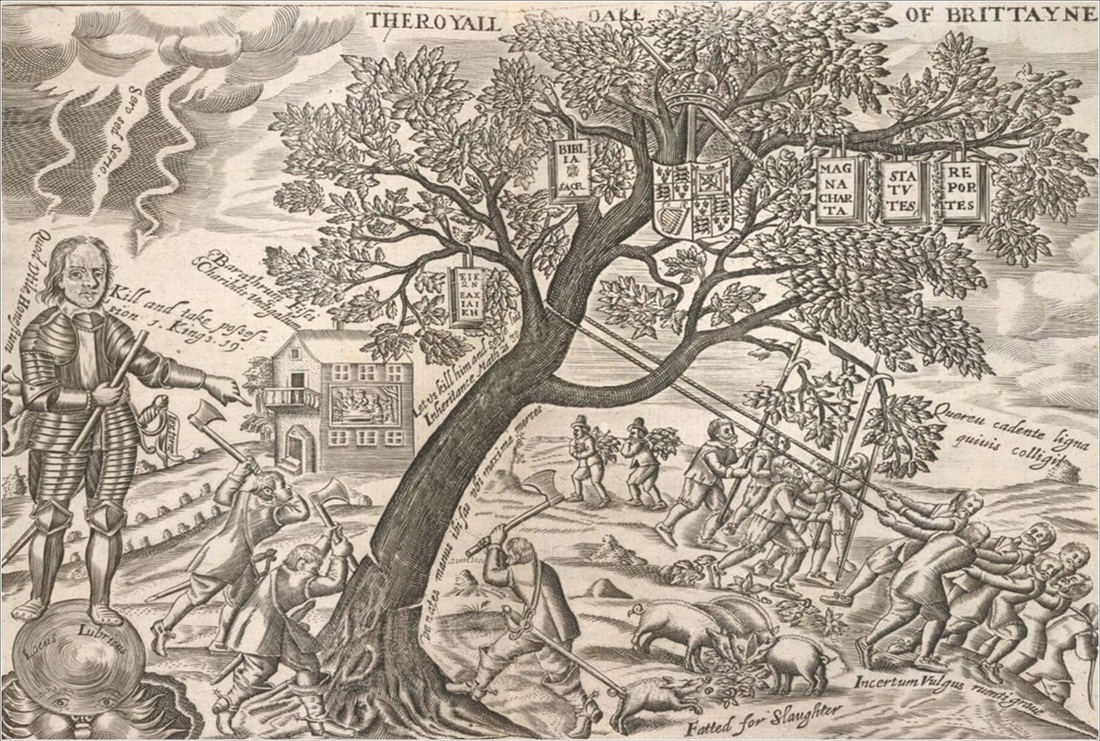The Great
"Fate Debate"
Understanding and Justifying the
Varying Points of View of the
Causes of the English Civil War
From 1642 to 1649, the English Cavaliers fought the Roundheads. We hear the names of James I, Oliver Cromwell, and William and Mary. We're exposed to the plight of the Irishmen and the struggles of the Scots. And yes, the Catholics and Protestants are still warring.
What was the cause of the English Civil War that led to the so-called "Bloodless Revolution" of the "Glorious Takeover" of William and Mary? And one could expect, the causes are multifaceted.
Traditionally, causal historians have aligned themselves into four (4) categories:
Briefly, the Whig historians tend to believe that the English Civil War was "inevitable", and the direct result of decades and centuries of crises. The Marxist historians see the English Civil War as a result of class struggle and that the War was chiefly result of economic problems.
Revisionists tend to focus blame on "short-term" crises and assign blame to Charles I, James I's successor. Their views tend to contrast sharply with those of the Whig and Marxist. They tend to align with the views of the modern historians who believe that the war was NOT "inevitable" and that it was chiefly caused by the problems presented by the rebellious Scots and revolting Irishmen.
But...who's fault was it? Who's "fate" seals the debate as the cause of the crisis? You've been divided into groups - Whigs vs. Revisionists - and your job is to summarize and justify the claims of the historians in the two camps. Then, you'll appeal to the judges who will ultimately conclude upon the chief causes of the English Civil War, and who deserves the assignment of fate.
Click on your appropriate link below:
What was the cause of the English Civil War that led to the so-called "Bloodless Revolution" of the "Glorious Takeover" of William and Mary? And one could expect, the causes are multifaceted.
Traditionally, causal historians have aligned themselves into four (4) categories:
- Whig historians
- Marxists historians
- Revisionist historians
- Modern historians
Briefly, the Whig historians tend to believe that the English Civil War was "inevitable", and the direct result of decades and centuries of crises. The Marxist historians see the English Civil War as a result of class struggle and that the War was chiefly result of economic problems.
Revisionists tend to focus blame on "short-term" crises and assign blame to Charles I, James I's successor. Their views tend to contrast sharply with those of the Whig and Marxist. They tend to align with the views of the modern historians who believe that the war was NOT "inevitable" and that it was chiefly caused by the problems presented by the rebellious Scots and revolting Irishmen.
But...who's fault was it? Who's "fate" seals the debate as the cause of the crisis? You've been divided into groups - Whigs vs. Revisionists - and your job is to summarize and justify the claims of the historians in the two camps. Then, you'll appeal to the judges who will ultimately conclude upon the chief causes of the English Civil War, and who deserves the assignment of fate.
Click on your appropriate link below:

